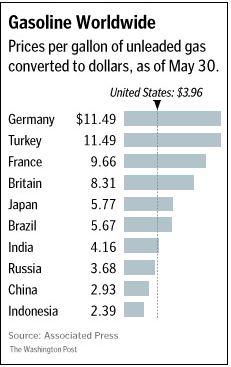Lead story in The Grumbler today: "Police are forced to cut frontline jobs to save on fuel cost".
Of course, there's always foot patrols. Peter Hitchens has often pointed out the usefulness of walking the beat in preventing crime. It all went wrong in the Sixties. As J. B. Morton wrote in his fantasy-satirical "Beachcomber" column in the Daily Express at that time:
"A Dictionary For Today
...FLYING SQUAD: A special contingent of police whose business is to arrive at the scene of a crime shortly after the departure of all those connected with it."
So much for the pale blue Ford Anglia and the comical attempt to imitate American cops as portrayed in shows like "The Streets of San Francisco."
I had to trawl around to find what I remembered as the origin of the term "bobby on the beat", but here we are at last:
"A standard piece of police equipment from the 1830's to the 1880's was the rattle for raising the alarm, most operated like the standard football rattle, when twirled round it made a distinctive sound. In the 1880's the police began using a whistle in place of the rattle, early versions used the 'pea' type (still used by football referees) but in about 1910 the more familiar tubular 'air whistle' was invented. The whistle was carried inside the front of the tunic or jacket attached to a silver chain which was fastened to a button on the front of the tunic. When breast pockets appeared the whistle moved to the right hand pocket with a silver chain still attached to the jacket button. In practice the whistle was found to have limited range and a bobby calling for assistance would often beat his truncheon on the pavement to alert nearby colleagues. Police personal radios appeared in the 1970's and some forces had lost their whistles by the 1990's but other forces felt it was a part of the uniform and have retained it."
(Source)
And it worked. So instead of moving forward to the world of "1984" or re-creating the secret police of the Austro-Hungarian Empire, why don't we build on the notion of "Police Community Support Officers" (or "The Ankh-Morpork Watch" as my wife calls them) and revive the Watch as it was up until the early nineteenth century? The roots of our police force are in the citizens' right and duty to maintain order in their own communities. As motorised mobility for the peasantry declines, crime, its detection and punishment may well become localised again.
And a reduction in sophistication would be appropriate. The old police recruitment poster said "Can you Read? Can you write? Can you fight?" - not, "Can you gobble the punter's biscuits and swill his tea while expressing sympathy for his unfortunate experience and sharing his frustration at the powerlessness of the criminal justice system?"
Of course, there's always foot patrols. Peter Hitchens has often pointed out the usefulness of walking the beat in preventing crime. It all went wrong in the Sixties. As J. B. Morton wrote in his fantasy-satirical "Beachcomber" column in the Daily Express at that time:
"A Dictionary For Today
...FLYING SQUAD: A special contingent of police whose business is to arrive at the scene of a crime shortly after the departure of all those connected with it."
So much for the pale blue Ford Anglia and the comical attempt to imitate American cops as portrayed in shows like "The Streets of San Francisco."
I had to trawl around to find what I remembered as the origin of the term "bobby on the beat", but here we are at last:
"A standard piece of police equipment from the 1830's to the 1880's was the rattle for raising the alarm, most operated like the standard football rattle, when twirled round it made a distinctive sound. In the 1880's the police began using a whistle in place of the rattle, early versions used the 'pea' type (still used by football referees) but in about 1910 the more familiar tubular 'air whistle' was invented. The whistle was carried inside the front of the tunic or jacket attached to a silver chain which was fastened to a button on the front of the tunic. When breast pockets appeared the whistle moved to the right hand pocket with a silver chain still attached to the jacket button. In practice the whistle was found to have limited range and a bobby calling for assistance would often beat his truncheon on the pavement to alert nearby colleagues. Police personal radios appeared in the 1970's and some forces had lost their whistles by the 1990's but other forces felt it was a part of the uniform and have retained it."
(Source)
And it worked. So instead of moving forward to the world of "1984" or re-creating the secret police of the Austro-Hungarian Empire, why don't we build on the notion of "Police Community Support Officers" (or "The Ankh-Morpork Watch" as my wife calls them) and revive the Watch as it was up until the early nineteenth century? The roots of our police force are in the citizens' right and duty to maintain order in their own communities. As motorised mobility for the peasantry declines, crime, its detection and punishment may well become localised again.
And a reduction in sophistication would be appropriate. The old police recruitment poster said "Can you Read? Can you write? Can you fight?" - not, "Can you gobble the punter's biscuits and swill his tea while expressing sympathy for his unfortunate experience and sharing his frustration at the powerlessness of the criminal justice system?"





